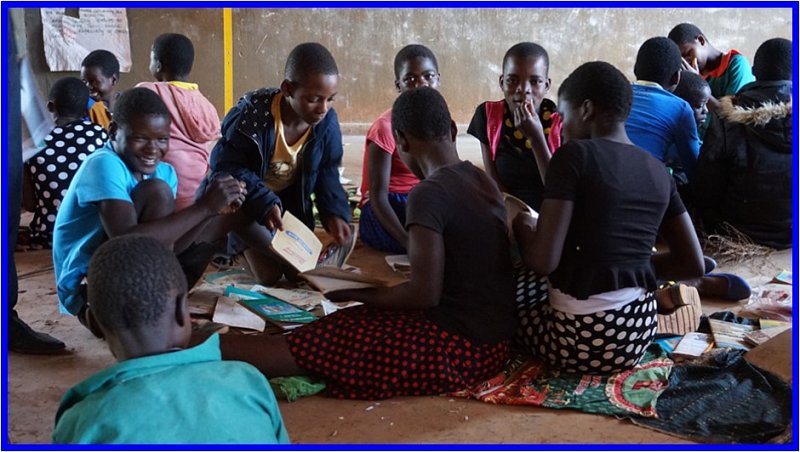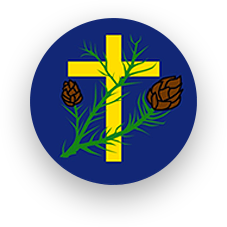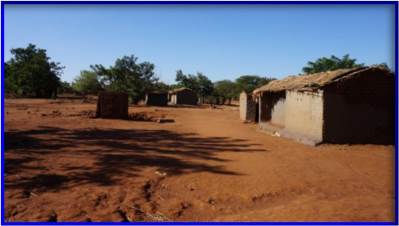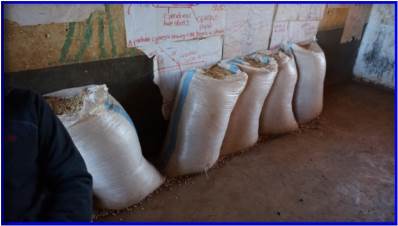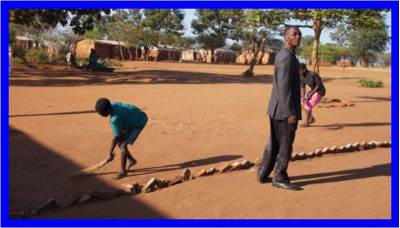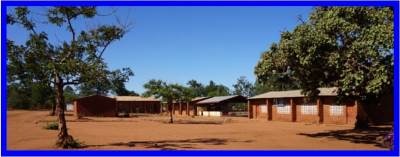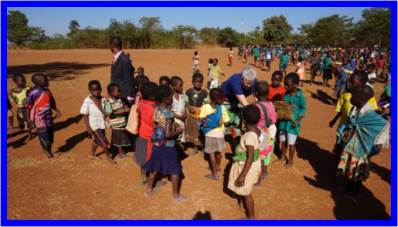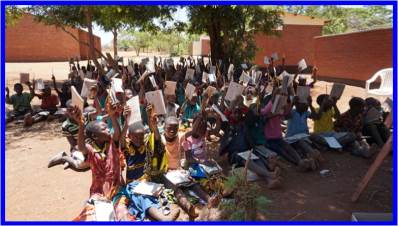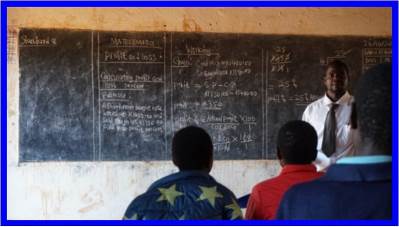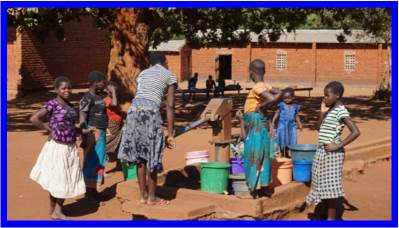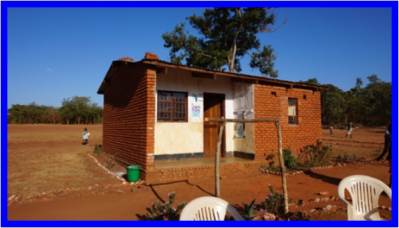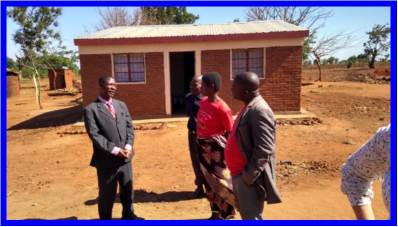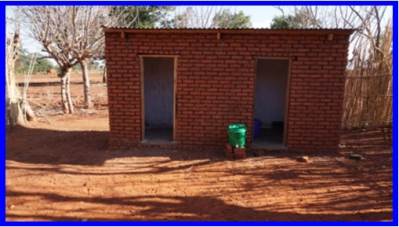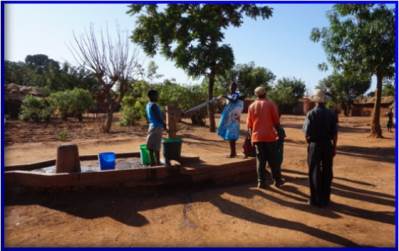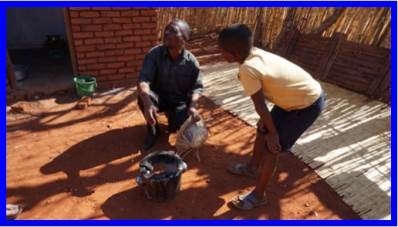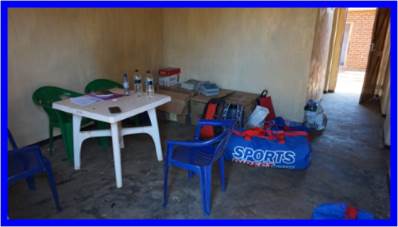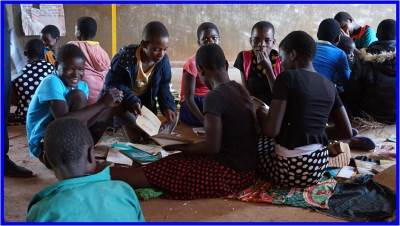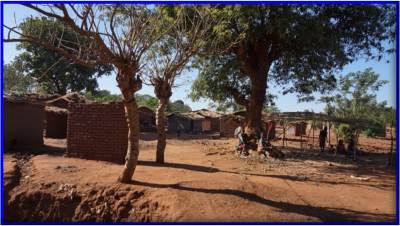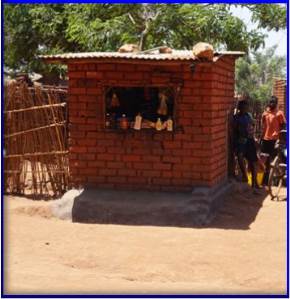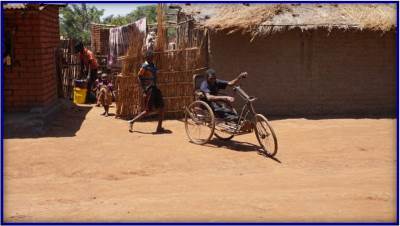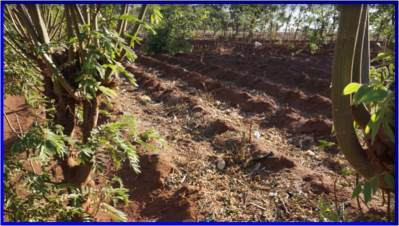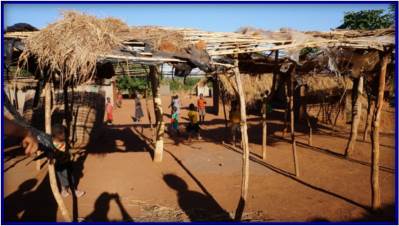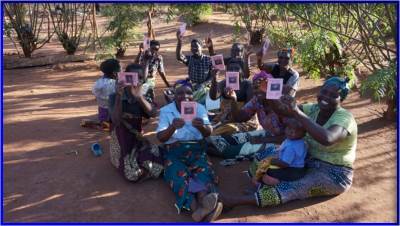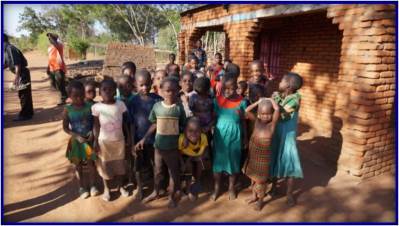Malawi Link School - Chikuyakuti
Chikuyakuti School, Malawi
Chikuyakuti village is reached by travelling north west of the capital, Lilongwe, for
30kms. The tarmac roads run out after 15kms and then the village is reached on
dirt tracks. The closest town is Nambuma, which you can view on Google
Earth.

The village includes about 120 extended families, so a population of about 1000 people. The village doesn’t have any electricity so people use torches for light. There is no running water. In addition to the borehole at the school there is another borehole at the other end of the village.

There are 3 small shops in the village. Shopkeepers cycle to Nambuma to get their supplies.

Houses are very basic brick built structures, usually with rafters covered in plastic with thatch on top. Wealthier families have corrugated iron roofs.

Alfred, the shop owner, had polio as a child. African Vision Malawi have supported him to buy his stock and develop his business. Disabled people are very marginalised in Malawi. Now Alfred is able to support himself and uses his trike to get to Nambuma.

About 80% of the population in Malawi is involved in agriculture. In the village people grow their own maize and vegetables. They store maize to eat throughout the year. It is eaten as whole kernels or ground down to make flour. This is cooked into nsima, which is the basic staple food. They are subsistence farmers, but any spare crops are sold to people locally.

The main cash crop grown is tobacco. It is dried on these racks. The farmers are being encouraged to diversify to other crops as consumption of tobacco is falling. The children will often be involved in farming before and after school. Children sometimes turn up in class with a hoe or farming tools for work on the way home from school. The older children will stop attending school when they are required in the fields. At school the children have lessons about agricultural production.

The women in the village have set up a bank with 26 members. They put money into their bank for others to be able to borrow. They are delighted in this picture as they were having some liquidity issue we could resolve. By giving them 10,000 Kwacha, which is about £10, we were able to assist them to keep the bank functioning and able to lend to those who needed it.

The villagers were all very welcoming. They help each other overcome the difficult conditions of unpredictable rainfall, poor harvests, damage to their property, from wind and rain, and general poverty. The village is full of children all playing together. At night, once it is dark, there is the most amazing sound of people singing. There is no power, so no TV’s, only the choirs singing.
Generally the children move around in a small area between very local villages. The children run freely around their own village. To get to the other villages people hire a bicycle taxi or cycle themselves on the dirt roads. They will grow food, buy supplies in the village shops or go to Nambuma for other goods. The poorest people have to make do with what they can grow and will often be hungry. We saw lots of children in the village who did not attend school because they cannot afford it. We also saw children who were hungry and unwell and only had one set of clothes.

Our support makes as massive difference because children are fed at school if they have not had breakfast. This is maize stored at the school to make maize porridge. Clothes are donated by African Vision Malawi. The shoes donated by Christ Church will help the poorest children ‘fit in’, when they have so little. We also pay for uniforms for the poorest children, who are often ashamed to come to school without a uniform.
The children, staff and villagers were so excited to hear about Christ Church School and the way in which our children raise money for them. Put simply, they were so pleased and grateful that Christ Church cares.

SCHOOL LIFE IN MALAWI
The children start to gather at school at about 6.30am. Some come from Chikuyakuti village and some from as far away as 3.5km. They sweep and tidy the grounds and then assembly takes place at 7am. In this picture the teachers’ houses are shown in the background.

The head teacher is supervising the sweeping!
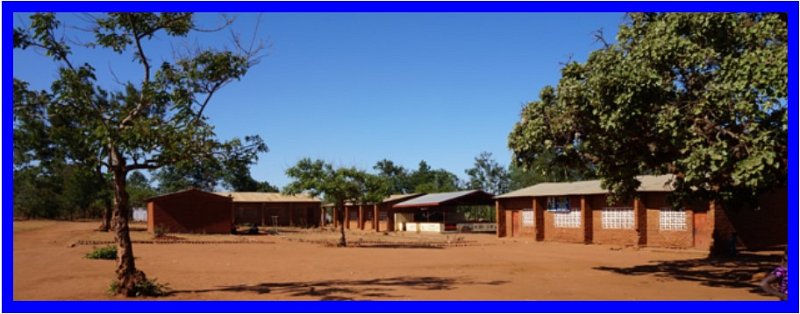
The whole school gathers for singing and a Bible reading at assembly on the football field.
The lessons start at 7.30am. The children carry all their belongings all day in a bag or on their backs.

Children start school at 6 years old and there are 8 years of education in the primary system. At Chikuyakuti there are 6 classrooms and a church. However, there are 9 classes, as standard one has 2 classes, one of 55 and the other 53. The class sizes are very big at the bottom of the school, there are over 100 in standard 1, 83 in standard 2 and 98 in standard 3. Standard 3 do not have a classroom until the standard 1 classes go home at 12pm. They are taught under a tree, 98 of them, with one teacher!

Standard 4 are taught in the church and standard 2 in the canopy classroom provided by Unicef.
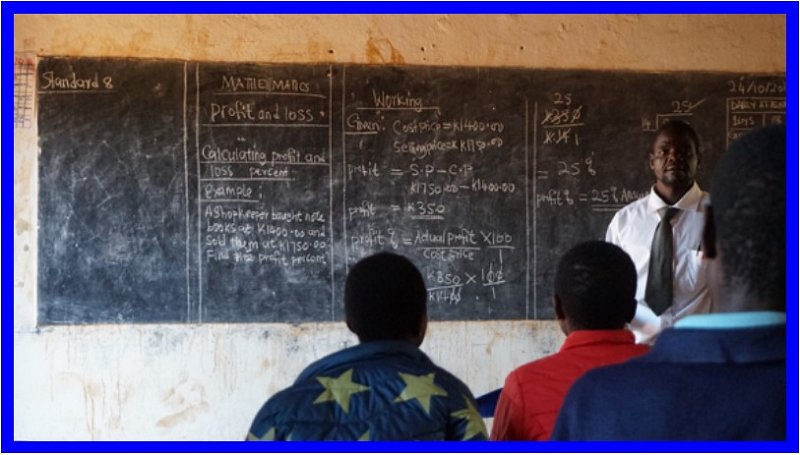
By standard 7 and 8 there are typically 30-35 children in each class as the children start to work in the fields and around the home. Additionally, the families think that the children have learned enough and the parents cannot afford to pay any more. Whilst education is ‘free’, children have to pay for exercise books, pens, exam fees and uniforms.
The children are taught using repetition and copying from the board. There are no real resources. Children in standard 1 and 2 might have a counting abacus made by their families.
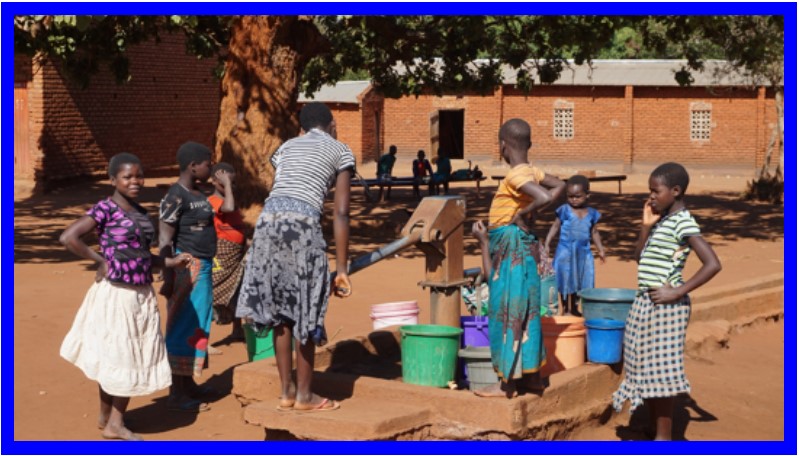
Over the years Christ Church School has made a real difference to the children’s and teachers’ lives. Our money has paid for a borehole in the school so they always get clean water.
We have also paid for an office to store books and equipment.
Additionally we have paid for many resources, breakfasts for orphans, toilets for the girls, water harvesters to collect rainwater and many other improvements around the school.
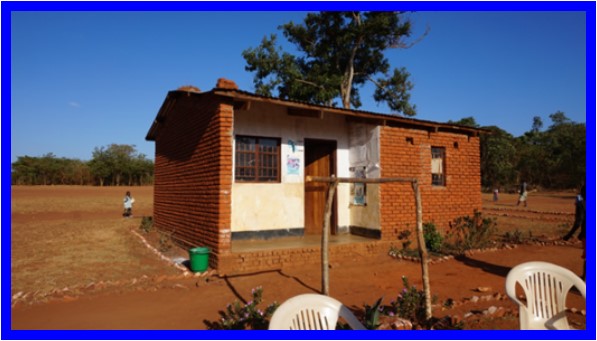
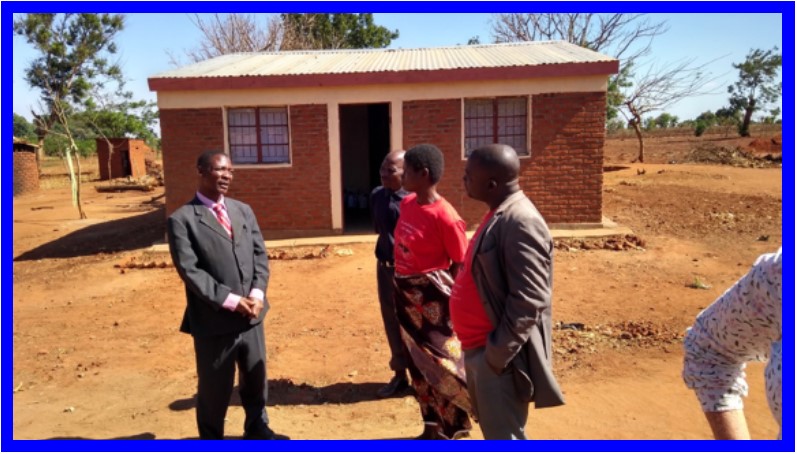
The kitchen and bathroom are in a different building outside. All cooking is done on charcoal or woodburners. The toilet is a separate building behind this one. There is no electricity or running water in the village.
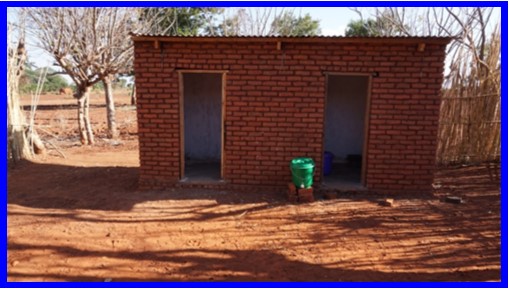
The younger children finish school at 12pm and wander home for lunch. The older children stay until 2pm when the school day finishes. The children have breaks at 9.30 and 12.30. They are taught Maths, English, Chichewa (the Malawian language), science, agriculture, arts and design, social development and PE. The youngest children are mostly taught in Chichewa. The older children are taught in English. To go on to secondary school you need to pass the standard 8 exam. We have copies for year 6 to have a go at!
A lot of children do not go onto secondary school. Last year 24 students from Chikuyakuti passed the exam to go away from home to the state run boarding secondary schools. The parents have to pay for equipment and uniforms and there are school fees to be paid. It costs £20 per month to send a child to secondary school. Very few children will go on to university due to the expense for their families.
The children were just as proud of their school and their teaching, as we are at Christ Church. They were so keen to learn and the teachers worked extremely hard, with
no resources and up to 98 children in a class, with no other adults to help them. The children and teachers were always smiling and having fun in the
lessons. At break time and after school the children all played together, with no interruptions from electronic toys! The children also had lots of other jobs
to do, helping in the fields and at home and getting water from the borehole. Standard 8 children return to school for extra lessons, by torchlight, from
6-8pm. Then, less than 12 hours later, it all starts again when the village starts to wake up at about 5am when the sun rises!
